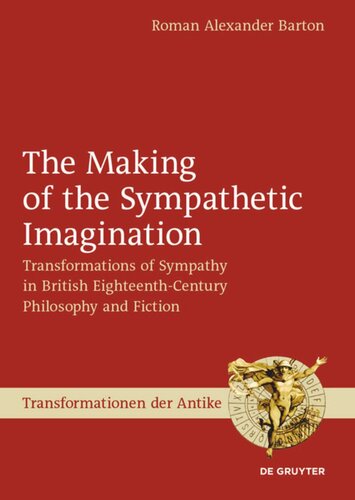

Most ebook files are in PDF format, so you can easily read them using various software such as Foxit Reader or directly on the Google Chrome browser.
Some ebook files are released by publishers in other formats such as .awz, .mobi, .epub, .fb2, etc. You may need to install specific software to read these formats on mobile/PC, such as Calibre.
Please read the tutorial at this link: https://ebookbell.com/faq
We offer FREE conversion to the popular formats you request; however, this may take some time. Therefore, right after payment, please email us, and we will try to provide the service as quickly as possible.
For some exceptional file formats or broken links (if any), please refrain from opening any disputes. Instead, email us first, and we will try to assist within a maximum of 6 hours.
EbookBell Team

4.4
32 reviewsHow is it that we feel with fictional characters and so approve or disapprove of their actions? For many British Enlightenment thinkers writing at a time when sympathy was the pivot of ethics as well as poetics, this question was crucial. Asserting that the notion of the sympathetic imagination prominent in Romantic criticism and poetry originates in Moral Sentimentalism, this study traces the emergence of what became a key concept of intersubjectivity. It shows how, contrary to earlier traditions, Francis Hutcheson and his disciples successively established the imagination rather than reason as the pivotal faculty through which sympathy is rendered morally effective. Writing at the interface of ethics and poetics, Adam Smith, Lord Kames and others explored the sympathetic imagination as a means of both explaining emotional reader response and discovering moral distinctions. As a result, the sentimental novel became the sight of ethical controversy. Arguing against the dominant view of research which claims that the novel of sensibility is mostly uncritically sentimental, the book demonstrates that it is precisely in this genre that the sympathetic imagination is sceptically assessed in terms of its literary and moral potential.